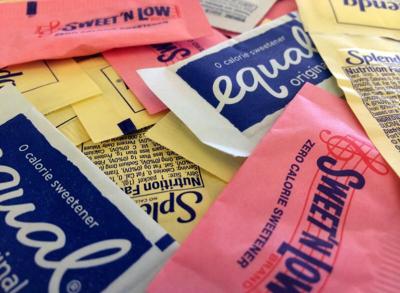A new World Health Organization guideline says artificial sweeteners like aspartame and stevia not only have no benefit for long-term weight loss ŌĆö they may make your health worse.
In a new , the WHO found long-term consumption of non-sugar sweeteners could be linked to a greater risk of type 2 diabetes, cardiovascular disease and death in adults.
That said, some experts are skeptical over the purported health risks and note artificial sweeteners are .
Are artificial sweeteners bad for you?
For now, the WHO ŌĆ£recommends againstŌĆØ using non-sugar sweeteners for weight management, it said . This doesnŌĆÖt include people with pre-existing diabetes, who may prefer the sweeteners as a sugar alternative as it has .
In the long term, the review found a higher intake of sugar substitutes was associated with weight gain, ŌĆ£increased risk of type 2 diabetes, cardiovascular diseases and all-cause mortality.ŌĆØ
That said, the paper admits it has ŌĆ£very low to low certaintyŌĆØ of this evidence. It also found sugar-free sweeteners led to ŌĆ£small reductionsŌĆØ in body fat in the short term, though this petered out in the long run.
Some experts are questioning the findings. ŌĆ£The evidence is not that goodŌĆØ in the studies they reviewed, said David Jenkins, Canada research chair in nutrition and metabolism and a professor at the University of Toronto.
Jenkins noted that performed by his colleagues at U of T suggested the opposite ŌĆö that , have no significant health harms and helped with weight loss.
Sugar alternatives are ŌĆ£basically a calorie reduction, and low calorie beverages seem to be not a bad option ŌĆö at least compared to soft drinks,ŌĆØ he said.
The WHO did not respond to the StarŌĆÖs requests for comment by time of publication.
What are sugar substitutes?
Sugar substitutes are products that taste sweet like sugar, but come with little or none of the attached calories. They come from a myriad of different sources ŌĆö some are naturally occurring, like stevia, while others like aspartame are synthetic.
These sweeteners ŌĆ£are not essential dietary factors and have no nutritional value,ŌĆØ said Francesco Branca, WHO Director for Nutrition and Food Safety, in the release. ŌĆ£People should reduce the sweetness of the diet altogether, starting early in life, to improve their health.ŌĆØ
The WHOŌĆÖs guidance encompasses all naturally-occurring, synthetic or modified non-sugar sweeteners. Common examples include: acesulfame K, aspartame, advantame, cyclamates, neotame, saccharin, sucralose and stevia and stevia derivatives.
Are artificial sweeteners healthier than sugar?
Although artificial sweeteners contain fewer calories than sugars, that doesnŌĆÖt necessarily make them the better choice ŌĆö they have far less nutritional value, for instance, compared to natural sugar sources like honey or maple syrup, said Gerry Kasten, a lecturer on food, nutrition and health at the University of British Columbia.
After reading the WHO report, Kasten told the Star: ŌĆ£I still feel that (artificial sweeteners) are safe, and ŌĆ” but given the options, why do we need them?ŌĆØ
Even diabetics, the people who ostensibly benefit most from sugar substitutes, are allowed a certain amount of sugar a day, Kasten continued. Here, they could substitute healthier sugars like honey instead.
ŌĆ£And if people want to drink soda pop that’s sweetened with non-nutritive sweeteners, there’s a wide variety of health effects (from drinking soda) that have nothing to do with sugar,ŌĆØ he said.
How can I lose weight instead?
At the end of the day, if youŌĆÖre looking to be healthier, youŌĆÖre better off sticking to water and unsweetened foods instead, Kasten said. If you get the craving for sweets, try a little bit of honey or natural syrup, he continued. The WHO also recommends naturally sugary snacks like fruit.
ŌĆ£There really is no benefit to (artificial sweeteners),ŌĆØ Kasten said. ŌĆ£I don’t see a place for them in the diet.ŌĆØ


























To join the conversation set a first and last name in your user profile.
Sign in or register for free to join the Conversation